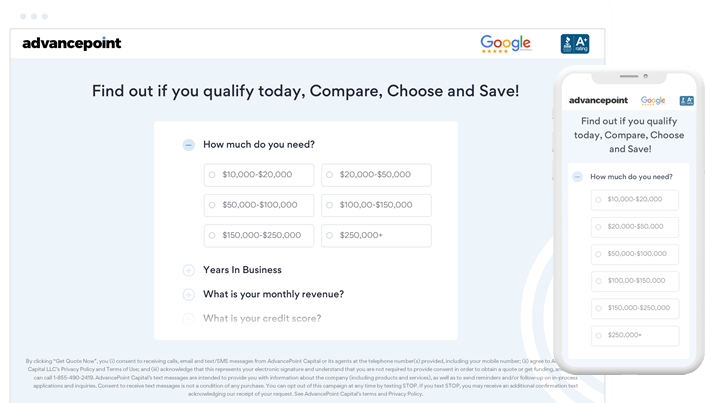
What is a long-term business loan?
Long-term business loans are generally defined as a specified loan amount with a repayment schedule lasting a duration of 2 to 25 years, having either a fixed or adjustable principal and interest rate and monthly or bi-monthly payments deducted from a business bank account. These loans are often for well-established and healthy businesses with sound financial statements and spending histories with the highest probability to pay back a long-term loan.
A long-term business loan provides a lump sum of money upfront to a business that then uses the capital for an opportunity or purpose. The most common reasons business owners choose long-term business loans are for business expansion or large purchases that require low monthly payments. Loan amounts tend to be larger for that reason and long-term payback terms are needed to make payments affordable and allow business owners to get a return on investment. Business owners rely on funding options to fuel these business needs for growth and success.
Benefits of Acquiring Long-Term Small Business Loan
Banks, online lenders, alternative lenders, marketplace financing companies, and brokers offer options for long-term business loans. Additionally, the Small Business Administration (SBA) offers small business loans that are sold and serviced by approved lenders. Due to their long payback period, the qualifications are fairly strict. You should expect to have excellent credit, established history of a business of greater than 3 years, and robust documentation/financials disclosing the financial strength of your business. Got a bad credit? Advancepoint Capital can help you acquire a long-term business loan with bad credit at the best interest rate possible. You can use the loan for these business benefits:
- Working capital loans
- Business expansion
- Debt refinancing
- Improvement or remodeling of existing facilities
- Business acquisition
- Purchase of commercial vehicle or vehicles
- Equipment financing
- Inventory or supplies
- Hire new employees
- Refinance existing debt

Get Started Today
AdvancePoint Capital makes the loan application process a simple, straightforward experience.
Best Types of Long-Term Business Loans
Wondering what your financing options are for a long-term business loan? Below are the best types of long-term loans that you can apply for today at Advancepoint Capital.

Traditional Long-Term Business Loans
Long-term loans range from 2 to 10 years. You must have an established business with good credit and can provide financials such as tax returns and other financial statements. Great financing solution for business expansion and other large projects or needs.

SBA Working Capital | SBA 7(a) Loan
SBA 7 (a) loans, which stands for Small Business Administration loans, are financial products established by the U.S. Small Business Administration to encourage lending to small businesses. SBA loans offer favorable rates and terms compared to traditional loans. The application process has stringent credit requirements, and expect to provide detailed documentation to support an approval.
Long-Term Small Business Loans: Pros and Cons
Long-term business loans can be used for a wide range of needs, but there are some important factors to weigh before deciding if long-term funding is right for you. Let’s look at the pros and cons.
Pros of Long-Term Business Loans
- Lower Interest Rates
- Lower Origination costs
- Longer repayment terms in years provide for lower payments
- Fixed Monthly payments
- Access to more Capital than short-term business loans
Cons of Long-Term Business Loans
- Qualifications are more difficult to get approved than short-term business loans
- Poor credit may hinder your choices
- Lengthy Paperwork required
- Longer Processing times
- Not flexible when it comes to drawing capital like a business line of credit
The Best Business Funding Providers Offering Long-Term Business Loans
U.S. Small Business Administration
The SBA’s mission is to help Americans who have the desire and passion to be entrepreneurs start, build, and grow their businesses successfully. The SBA is not the lender, but a government agency that provides small business loan program SBA loans guarantees up to 85% of the amount provided through an SBA-approved business lender. The approved business lenders may require real estate, in some cases, for collateral. Most loans offered by SBA are considered term business loans long. SBA is the leading source for long-term business loans and provides the most long-term funding in the United States to small businesses.
Federal and State Banks
Bank loans are known to have long-term loans for businesses but be prepared to provide assets for collateral such as real estate. A bank loan for a business will require extensive paperwork and definitely some patience if they are to loan long-term. Bank loans at the end of the day do have the best terms, but if you’re looking for quick service, a bank loan may not be the best solution and another option may be best.
Online Lenders
Online lenders are convenient, offer quick service, and are the best alternative to banks when trying to access long-term business loans. An online lender typically has better service and more diverse financing options that offer more flexible terms when it comes to long-term loans. Check the reputation of any online lender, reviews are easy to find.
Credit Unions
Credit unions are not known for providing business loans, but some do, so they can’t be left off the list. Expect it to be difficult, if they do to qualify for long-term business loans.
Loan Brokers
Some business loan brokers offer or specialize in funding businesses looking for a long-term loans. Brokers do so primarily through approved lenders with the SBA, but also some online lenders as well.
Long-Term Business Loans Summary
A long-term loan is the best financing available to small businesses looking for large loan amounts with the lowest payments vs short-term loans. Unfortunately, they are not easy to obtain and have high credit score standards, strong cash flow requirements, and a lengthy financial disclosure of the business. It’s worth the effort if you can get a long-term loan for real estate and it’s important to work with a knowledgeable provider who can steer you through the prequalification and approval process.
This provider should have the experience and knowledge so that you are offered all available long-term options that are available in the marketplace. You don’t want to end up wasting your time on a product you were not qualified to get from the beginning. Not a good feeling for sure. The risks of approval should be disclosed upfront. Make sure that you have knocked out the basic requirements of a long-term loan so that you’re not spending all of your time and energy on a goal that’s unreachable. Make sure your cash flow and credit is up to par and finances are in order.
Difference Between Short-Term and Long-Term Business Loans
The main difference between short-term loans and long-term loans is the time required to pay back the borrowed money.
A short-term loan is a personal loan or business loan issued by banks, or online lenders. Similar to a business credit card, you’ll want to pay back any debt quickly. They are useful when you need to cover immediate expenses or expand your working capital.
These loans are deposited in the borrower’s bank account as a lump sum. They can be used to improve a company’s cash flow or make an asset purchase.
A long-term loan is similar to a short-term loan in that borrowers receive the full amount as a lump sum. Most traditional banks, the Small Business Administration, and online lenders provide these loans. In addition to an SBA loan or business loan, you can get a long-term personal loan.
Examples of long-term loan products include merchant cash advances, reverse mortgage loans, car loans, and secured business loans. Here are other key differences between these loans.
1) Repayment Schedule
Short-term loans tend to have fewer loan payments overall. With this type of loan, lenders expect you to have paid back the entire loan within one to five years. Some loans have terms as short as six months.
Long-term lenders, on the other hand, will set a repayment timeline for years or even decades. For example, mortgages come with a loan repayment of 20 or 30 years. Personal loans are usually five to seven years.
Usually, you’ll make monthly repayments with either long-term or short-term loans, but the debt is stretched out over a much longer timeline with long-term funding. Because they involve a longer period of time, you could pay more in interest overall.
2) The Need for Collateral
One of the advantages of short-term lending for a business owner is you don’t usually need any collateral. These loans aren’t as risky for lenders, so you generally won’t have to use a high-value asset to back the debt.
Because of the larger timeframe with long-term lending, problems with non-payment or late payments are more likely. There’s also more money involved because these loans tend to be large.
The bottom line is that there’s more risk. So the bank might ask you to put up an asset as security before they finance the amount you want to borrow.
3) The Application Process: Ease of Approval
Long-term and short-term lending products have different loan application requirements. With a shorter repayment schedule, banks require a borrower to provide minimal documentation. Also, they’ll approve your loan fairly quickly — sometimes within 24 hours.
This can be a huge advantage for small businesses that need fast access to funding.
With long-term financing, you need to fill out various forms and provide verification for more categories.
Suppose you take out a commercial loan or are interested in SBA loans. In that case, you’ll need specific information to demonstrate your company’s financial strength, such as a balance sheet or bank statement. But you’ll also need documentation on any asset you’re using as security.
These loans also tend to take more time to be approved, from a few weeks to around three months.
4) Loan Amount
Short-term lenders let commercial borrowers take out between $5,000 to $300,000. There’s no fixed amount for long-term loans. Generally, for personal loans, you can borrow up to $50,000. For business loans or mortgages, you can borrow hundreds of thousands or more.
For both short-term and long-term lending, the maximum amount depends on the loan type and how qualified the borrower is.
5) Interest Rates
One of the other main differences between a short-term loan and a longer-term financing product is the interest charged. Basically, a lender charges more with a shorter repayment schedule.
The lender won’t make enough with a low-interest rate and a shorter term, so they charge the borrower high-interest rates. However, the cost of interest will vary based on the type of loan you take out. For example, payday loans are known to have extremely high rates.
Financial institutions charge lower interest rates for long-term loans because they are paid over several years. And because they’re backed up by collateral, they’re less risky.



